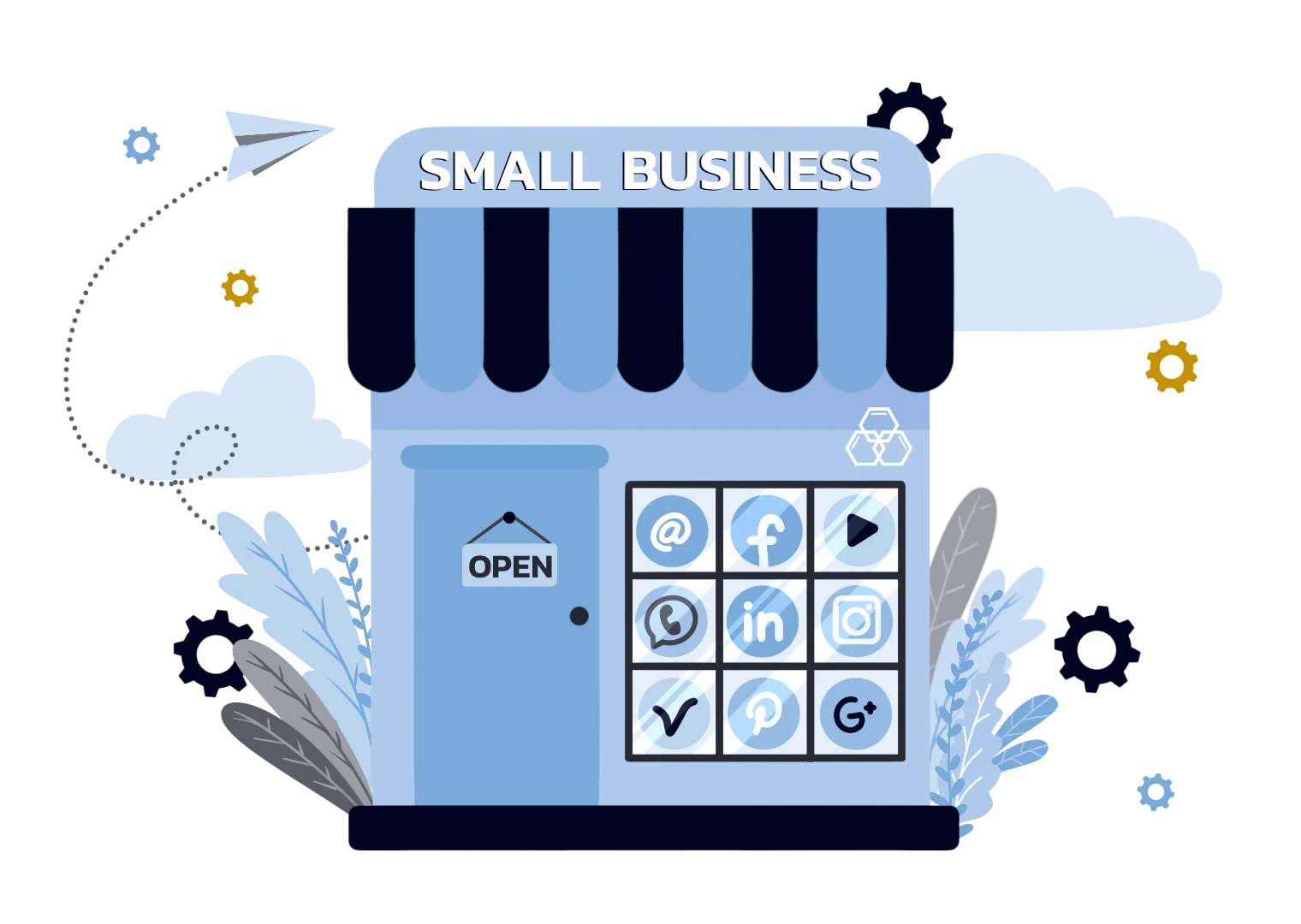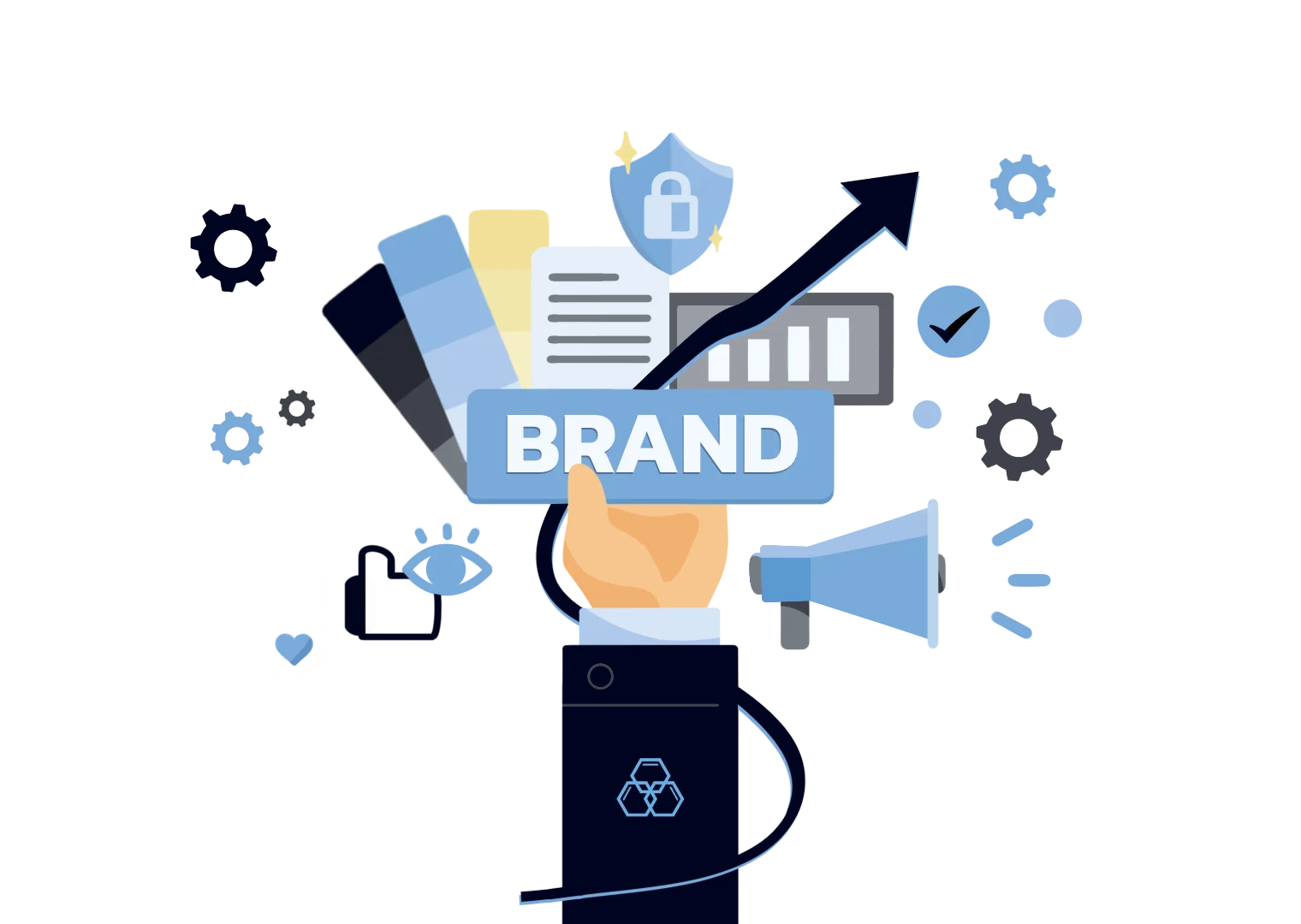Standing out can feel like an uphill battle for small businesses. Algorithms are evolving, marketing channels are daunting, and data-driven strategies can be paralyzing. While DIY digital marketing might seem like a cost-effective solution, it can lead to missed opportunities and suboptimal results. This is where digital marketing agencies come in.
Hiring a seasoned agency can be a game-changer, providing the specialized knowledge, tools, and resources necessary to achieve marketing goals. But every business owner asks first: How much do marketing agencies cost?
Let’s get started!
What Does a Digital Marketing Agency Do?
A digital marketing agency has experts who navigate the digital landscape and give your business a jumpstart. Here’s a breakdown of their services:
Search Engine Optimization (SEO)
Digital marketing agencies do SEO, which involves various strategies and techniques to improve a website's visibility on search engine results pages (SERPs). This process includes:
- Keyword research
- On-page optimization (such as meta tags, headings, and content quality)
- Off-page optimization (such as backlinks and social signals)
- Technical SEO (such as site speed, mobile-friendliness, and secure connections)
- Performance analysis.
The goal is to attract organic traffic, which comes to your site naturally through search engine queries without needing paid advertising.
Social Media Marketing

Agencies uses platforms like Facebook, Twitter, Instagram, LinkedIn, and others to build and engage with an audience. Social media marketing agency strategies may include:
- Creating and sharing content (such as text posts, images, and videos)
- Running paid advertising campaigns
- Engaging with followers through comments and messages
- Analyzing engagement metrics to refine marketing strategies.
The objective is to increase brand awareness, foster community engagement, drive website traffic, and boost sales.
Content Marketing

Agencies can launch content marketing campaigns that focus on creating, publishing, and distributing valuable and relevant content to attract and retain a clearly defined audience. The content can take various forms, including:
- Blog posts
- Article
- Videos
- Infographics
- Podcasts
- eBooks
- Whitepapers
The aim is to provide valuable information that meets the needs of your audience, establishes your brand as an authority in your industry, and encourages customer loyalty and engagement.
Email Marketing
Email marketing involves building and maintaining relationships with customers through email campaigns. This includes:
- Collecting email addresses through various methods (like sign-up forms and lead magnets)
- Segmenting email lists based on customer behavior and preferences
- Sending targeted emails like newsletters, promotional offers, product updates, and personalized content.
The goal is to keep customers informed, engaged, and encouraged to take action, whether purchasing, signing up for a webinar, or downloading a resource.
Website Design and Development
This encompasses creating visually appealing and user-friendly websites that provide a great user experience (UX). Website design involves:
- Designing the aesthetics, layout, and overall look and feel of the site
- Developing the coding and technical aspects that make the site functional
- Making a responsive web design to ensure the site works well on all devices
- Optimizing the website for speed and accessibility.
A well-designed website attracts visitors, keeps them engaged, and encourages conversions.
Analytics and Reporting

Analytics and reporting involve tracking and analyzing data related to website traffic, user behavior, and campaign performance. Marketing agencies use tools like Google Analytics, social media insights, and other analytics platforms to provide valuable information on page views, bounce rates, conversion rates, and user demographics.
This data helps businesses understand what’s working, identify areas for improvement, and make informed decisions to optimize marketing strategies and achieve better results.
Brand Strategy

The brand strategy involves developing and implementing a strong brand identity that resonates with your target audience. This includes developing your:
- Brand’s mission
- Brand values
- Unique selling proposition
- Brand voice
A robust brand strategy helps differentiate your business from competitors, builds brand recognition, and fosters customer loyalty. It encompasses all aspects of branding, including logo design, messaging, marketing materials, and customer interactions, ensuring a consistent and cohesive brand experience across all touchpoints.
How to Tell that You Need a Digital Marketing Agency
An in-house marketing team has advantages, but partnering with a digital marketing agency can offer distinct benefits that might be more advantageous for many companies. Here’s how you can tell that you may need to hire a marketing agency rather than building an in-house team.
1. You Need Access to a Diverse Skill Set

Digital marketing companies bring together professionals with a wide range of skills and expertise. You gain access to SEO specialists and content creators, social media managers, and PPC experts; agencies have a team of seasoned professionals who are well-versed in the latest marketing trends and technologies. Building an in-house team with such a comprehensive skill set can be costly and time-consuming.
2. You Want to be Cost-Effective
Hiring an in-house team requires significant investment in salaries, benefits, training, and technology. Conversely, hiring a digital marketing agency gives you access to an entire team of experts at a fraction of the cost.
Agencies offer scalable services tailored to your budget, allowing you to maximize your marketing spend.
3. You Want to Focus on Core Business Activities
Managing an in-house digital marketing team can divert your attention from core business activities. By outsourcing your digital marketing needs to an agency, you can focus on what you do best—product development, customer service, or sales—while leaving the marketing to the experts.
4. You Need the Latest Tools and Technologies
Digital marketing agencies invest in technology to stay ahead of the curve. These tools can be expensive and require specialized knowledge to use effectively. When you work with an agency, you gain access to these advanced tools without investing in them yourself, alongside experts who can make the most of them.
5. You Focus on Scalability and Flexibility

As your business grows, your marketing needs will evolve. Digital marketing agencies offer the flexibility to scale your marketing efforts up or down based on your current needs and goals.
This scalability is often harder to achieve with an in-house team, which may require additional hires and training.
6. You Prefer a New Perspective
An external agency can provide a new perspective and fresh ideas that an in-house team might overlook due to familiarity with the brand. Agencies work with various clients across different industries, bringing innovative strategies and insights that can give your business a competitive edge.
7. You Need Faster Results
Agencies can implement digital marketing strategies quickly and efficiently with their expertise and resources. You don’t have to invest in training; they have tried-and-tested processes in place, which means you can expect faster results than when it might take an in-house team to strategize and execute from scratch.
8. You Want a Comprehensive Analytics and Reporting

Agencies are adept at tracking and analyzing marketing performance. They provide detailed reports and insights that help you understand the effectiveness of your campaigns. This data-driven approach ensures your marketing strategies are optimized for the best possible outcomes.
Factors that Affect the Cost of Hiring a Marketing Agency
The cost of hiring an agency varies widely. Here are the key factors that influence how much does it cost to hire a marketing agency:
1. Scope of Services
Comprehensive packages that include SEO, PPC, content marketing, social media management, email marketing, and website development will cost more than a single service.
Assessing your needs and determining which services are most critical for your business goals is essential.
2. Agency Expertise and Reputation
Agencies with a strong reputation and a proven track record of success often charge higher fees for their services. Their expertise, high-quality work, and industry knowledge justify the premium.
While it might be tempting to go for a cheaper option, investing in a reputable agency can yield better results and a higher return on investment.
3. Campaign Complexity
Simple campaigns with straightforward goals, such as basic SEO or social media management, are generally less expensive than complex campaigns involving multi-channel strategies, advanced targeting, and continuous optimization. Customization and the need for specialized skills add to the overall cost.
4. Duration of Engagement
Short-term projects or one-time campaigns might have a higher monthly cost than long-term engagements. Agencies often offer discounts for longer contracts, providing stability and the opportunity to build a deeper understanding of your business.
5. Geographical Location
Agencies based in major cities or regions with a high cost of living typically charge more than those in smaller towns or countries with lower operating costs. However, remote work and virtual collaboration can mitigate this factor, allowing you to choose an agency from anywhere in the world.
6. Level of Customization
Tailoring a marketing strategy for specific needs requires deeper research, strategy development, and implementation, resulting in higher costs. However, personalized strategies often lead to better alignment with your goals and more effective results.
7. Size of Your Business
Larger businesses with more extensive marketing needs and higher budgets might require more comprehensive services, while smaller businesses might need more basic, cost-effective solutions. Many marketing agencies often adjust their pricing based on the scale of their projects.
Digital Marketing Agency Cost Per Service
Here is a general overview of the price ranges for common digital marketing services:
Estimated Cost Ranges
Please note that these are general estimates, and actual marketing agency pricing may vary significantly:
SEO:
- Keyword research and analysis: $500 - $2,000
- On-page optimization: $500 - $1,500
- Link building: $500 - $5,000 per month
- Technical SEO: $1,000 - $5,000
Social Media Marketing:
- Social media strategy: $500 - $2,000
- Content creation and scheduling: $500 - $2,000 per month
- Community management: $500 - $1,500 per month
- Paid social advertising: $500 - $2,000 per month
Content Marketing:
- Content strategy: $500 - $2,000
- Content creation (blog posts, articles, etc.): $50 - $200 per piece
- Content distribution: $500 - $1,500 per month
Email Marketing:
- Email campaign creation: $500 - $1,500
- Email list management: $250 - $1,000 per month
- Email automation: $500 - $2,000
Website Design and Development:
- Website design: $2,000 - $10,000+
- Website development: $5,000 - $50,000+
Analytics and Reporting:
- Website analytics setup: $500 - $1,500
- Data analysis and reporting: $500 - $2,000 per month
Brand Strategy:
- Brand identity development: $2,000 - $10,000+
- Brand messaging and guidelines: $500 - $2,000
Final Thoughts
Digital marketing agency costs vary widely based on services, agency size, and location; understanding the average price ranges clearly can help you budget effectively.
But if you want:
- Invest in a marketing strategy with experts
- Want a simple and fixed monthly subscription
- Cost tailored for startups and small businesses
Let us know how Evolv can help you!
Also, check out our blog page and be updated for the latest insights on marketing and brand-building.







